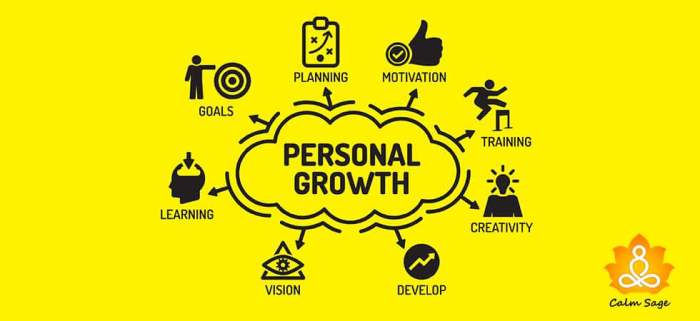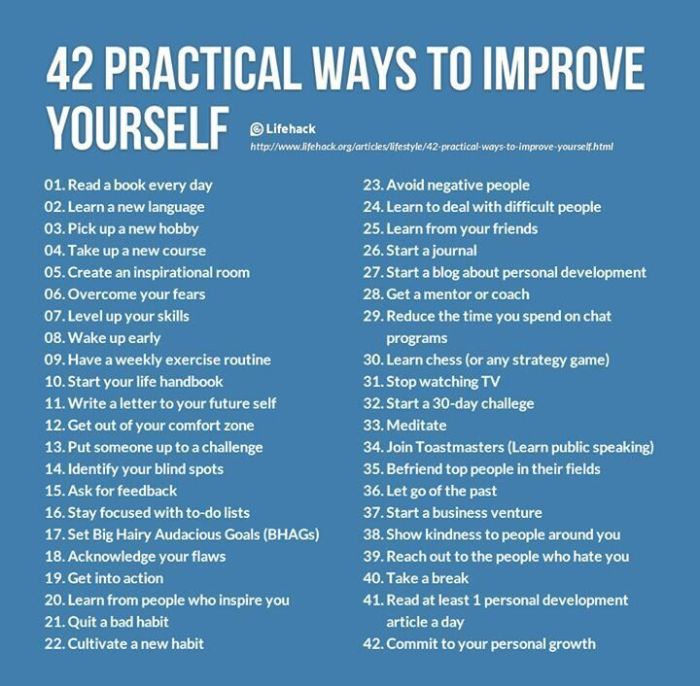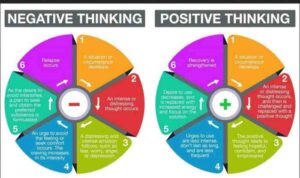Self-Improvement Tips sets the stage for this enthralling narrative, offering readers a glimpse into a story that is rich in detail with american high school hip style and brimming with originality from the outset.
Ready to unlock your full potential? Dive into these tips that will revolutionize your approach to personal growth and self-improvement.
Importance of Self-Improvement

Self-improvement is like watering a plant to help it grow. It’s crucial for personal growth because it allows you to evolve, learn, and become the best version of yourself. When you actively work on improving different aspects of your life, you open up opportunities for positive change and development.
Enhanced Confidence and Self-Esteem
- By setting and achieving goals, you boost your confidence and self-esteem.
- Improving skills and abilities can lead to a greater sense of self-worth.
- Overcoming challenges through self-improvement can make you feel more capable and empowered.
Increased Success in Various Areas
- Enhancing your skills can lead to better performance at work or in personal projects.
- Improving communication skills can strengthen relationships and networking opportunities.
- Developing a growth mindset can help you adapt to challenges and seize new opportunities.
Overall Happiness and Fulfillment
- Self-improvement allows you to align your actions with your values and goals, leading to a sense of purpose.
- Personal growth can help you build resilience and cope effectively with setbacks.
- Continuous self-improvement fosters a positive mindset and outlook on life.
Setting Achievable Goals
Setting achievable goals is crucial for self-improvement as they provide a roadmap to success and help keep you motivated. By setting realistic and attainable goals, you can track your progress and celebrate your achievements along the way.
Importance of SMART Goals, Self-Improvement Tips
- Specific: Clearly define what you want to achieve. For example, instead of saying “I want to get fit,” say “I want to lose 10 pounds in three months.”
- Measurable: Ensure your goals can be measured so you can track your progress. This could be tracking the number of hours spent studying each week or the amount of weight lifted in the gym.
- Attainable: Set goals that are challenging but within reach. Avoid setting unrealistic goals that may lead to frustration and demotivation.
- Relevant: Your goals should align with your values and long-term objectives. Make sure they are meaningful to you personally.
- Time-bound: Set a deadline for achieving your goals. This adds a sense of urgency and helps you stay focused.
Examples of Short-term and Long-term Goals
- Short-term Goal: Improve time management skills by creating a daily schedule and sticking to it for a month.
- Long-term Goal: Learn a new language fluently within two years by taking classes and practicing regularly.
Developing Healthy Habits

Developing healthy habits plays a crucial role in self-improvement as they contribute to overall well-being and personal growth. By incorporating positive habits into your daily routine, you can boost your mental, physical, and emotional health.
Strategies for Developing and Maintaining Healthy Habits
- Start Small: Begin by setting achievable goals and gradually incorporating healthy habits into your routine. Small changes can lead to long-term success.
- Stay Consistent: Consistency is key when it comes to developing healthy habits. Create a schedule and stick to it to make healthy behaviors a regular part of your life.
- Find Accountability: Share your goals with a friend or family member who can help keep you on track and provide support along the way.
- Reward Yourself: Celebrate your progress and achievements to stay motivated and reinforce positive habits.
Impact of Habits on Personal Growth
Healthy habits such as regular exercise, mindfulness practices, and eating nutritious foods can have a profound impact on personal growth:
- Exercise: Regular physical activity not only improves physical health but also boosts mood, reduces stress, and enhances cognitive function, leading to increased productivity and overall well-being.
- Mindfulness: Practicing mindfulness techniques such as meditation and deep breathing can help reduce anxiety, increase self-awareness, and improve focus, leading to a greater sense of clarity and emotional stability.
- Healthy Eating: Consuming a balanced diet rich in fruits, vegetables, whole grains, and lean proteins provides essential nutrients for optimal physical and mental health, fueling your body and mind for success and personal development.
Time Management Techniques: Self-Improvement Tips
Effective time management is crucial for maximizing productivity and achieving self-improvement goals. By prioritizing tasks and setting boundaries, individuals can make time for activities that contribute to personal growth and development.
Utilize a To-Do List
- Write down all tasks and goals for the day, week, or month.
- Break down larger tasks into smaller, more manageable steps.
- Check off completed tasks to track progress and stay motivated.
Set Specific Goals and Deadlines
- Define clear objectives and establish deadlines for each task.
- Allocate specific time slots for different activities to ensure focus and efficiency.
- Avoid multitasking to maintain quality and avoid distractions.
Use Time Blocking Techniques
- Dedicate blocks of time to specific tasks or categories of activities.
- Minimize interruptions by setting designated work periods without distractions.
- Include breaks in between blocks to rest and recharge for better productivity.
Employ Technology Tools
- Utilize digital calendars, task management apps, or project management platforms.
- Set reminders and notifications to stay on track with deadlines and appointments.
- Use time tracking tools to analyze and optimize time spent on different activities.









